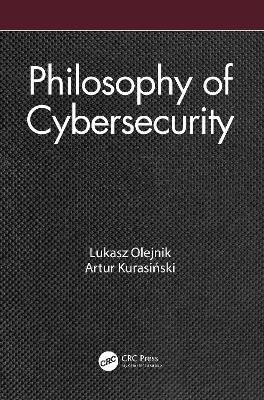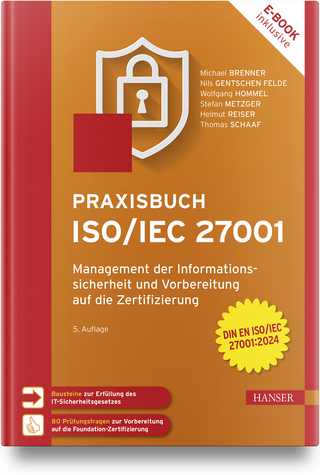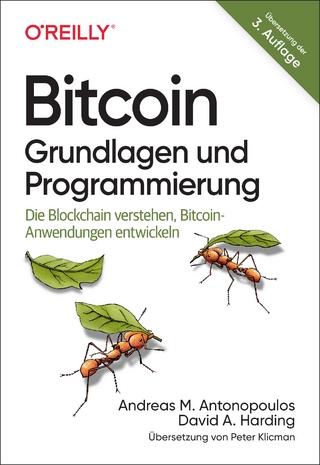
Philosophy of Cybersecurity
CRC Press (Verlag)
978-1-032-52761-1 (ISBN)
Technology and digitization are a great social good. But they also involve risks and threats. Cybersecurity is not just a matter of data or computer security; cybersecurity is about the security of society.
Why "Philosophy"? To understand how to reason and think about threats and cybersecurity in today’s and tomorrow’s world, this book is necessary to equip readers with awareness. Philosophy of Cybersecurity is about the user’s perspective, but also about system issues.
This is a book for everyone—a wide audience. Experts, academic lecturers, as well as students of technical fields such as computer science and social sciences will find the content interesting. This includes areas like international relations, diplomacy, strategy, and security studies. Cybersecurity is also a matter of state strategy and policy.
The clarity and selection of broad material presented here may make this book the first book on cybersecurity you’ll understand.
It considers such detailed basics as, for example, what a good password is and, more importantly, why it is considered so today. But the book is also about systemic issues, such as healthcare cybersecurity (challenges, why is it so difficult to secure, could people die as a result of cyberattacks?), critical infrastructure (can a cyberattack destroy elements of a power system?), and States (have they already been hacked?).
Cyberspace is not a "grey zone" without rules. This book logically explains what cyberwar is, whether it threatens us, and under what circumstances cyberattacks could lead to war. The chapter on cyberwar is relevant because of the war in Ukraine. The problem of cyberwar in the war in Ukraine is analytically and expertly explained. The rank and importance of these activities are explained, also against the background of broader military activities.
The approach we propose treats cybersecurity very broadly. This book discusses technology, but also ranges to international law, diplomacy, military, and security matters, as they pertain to conflicts, geopolitics, political science, and international relations.
Lukasz Olejnik (LukaszOlejnik.com) is an independent cybersecurity and privacy researcher and consultant. He holds a Computer Science PhD from INRIA (France). He worked at CERN (European Organisation for Nuclear Research), and was a research associate at University College London. He was associated with Princeton's Center for Information Technology Policy, with Oxford's Centre for Technology and Global Affairs, and was elected a Member of World Wide Web Consortium's (W3C) Technical Architecture Group. Fellow of Geneva Academy of International Humanitarian Law and Human Rights. Former cyberwarfare advisor at the International Committee of the Red Cross in Geneva, where he worked on the humanitarian consequences of cyberwarfare. He advised on science and new technologies at the European Data Protection Supervisor. He helps various companies and organisations, including with cybersecurity, privacy and data protection, and technology policy. His comments appeared in places such as Financial Times, Washington Post, New York Times, Wall Street Journal, Sueddeutsche Zeitung, El Pais, or Le Monde. He authored scientific papers, reports, opinion articles in venues like Wired or Foreign Policy. Artur Kurasinski is a tech-realist, a serial innovator, entrepreneur, public speaker, and a game and comic book author. Artur analyzes and comments technology from economic, sociologic, and geopolitical perspectives. Co-creator of numerous Polish startups. A mentor in many contests, author of one of Poland's most popular tech blogs: kurasinski.com. A speaker and participant in Poland's leading important tech conferences. Co-creator of Poland's oldest series of startup meet-ups (Aula Polska) and the Auler awards.
1. Introduction to the Philosophy of Cybersecurity, 2. Cyber Threats and the Necessary Clarifications, 3. Cybersecurity from the User's Point of View, 4. Cybersecurity of Healthcare Infrastructure, 5. Cybersecurity of Critical Infrastructure, 6. Cybersecurity of a State, 7. Cyberconflict and Cyberwar, 8. Conclusion
| Erscheinungsdatum | 21.09.2023 |
|---|---|
| Zusatzinfo | 8 Line drawings, black and white; 8 Illustrations, black and white |
| Verlagsort | London |
| Sprache | englisch |
| Maße | 156 x 234 mm |
| Gewicht | 335 g |
| Themenwelt | Informatik ► Netzwerke ► Sicherheit / Firewall |
| Mathematik / Informatik ► Informatik ► Theorie / Studium | |
| Mathematik / Informatik ► Informatik ► Web / Internet | |
| Recht / Steuern ► Strafrecht ► Kriminologie | |
| Wirtschaft ► Volkswirtschaftslehre | |
| ISBN-10 | 1-032-52761-7 / 1032527617 |
| ISBN-13 | 978-1-032-52761-1 / 9781032527611 |
| Zustand | Neuware |
| Informationen gemäß Produktsicherheitsverordnung (GPSR) | |
| Haben Sie eine Frage zum Produkt? |
aus dem Bereich


